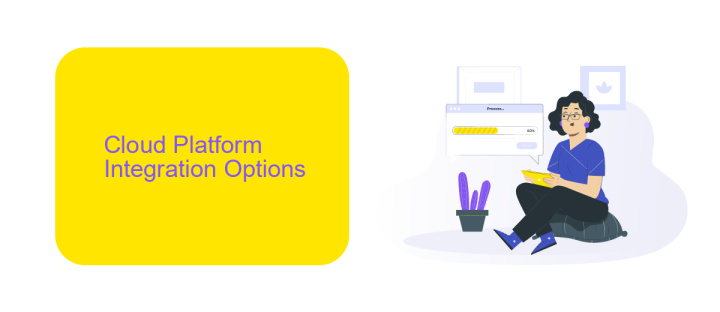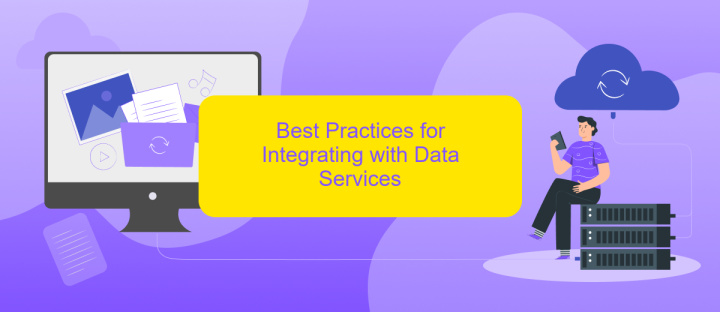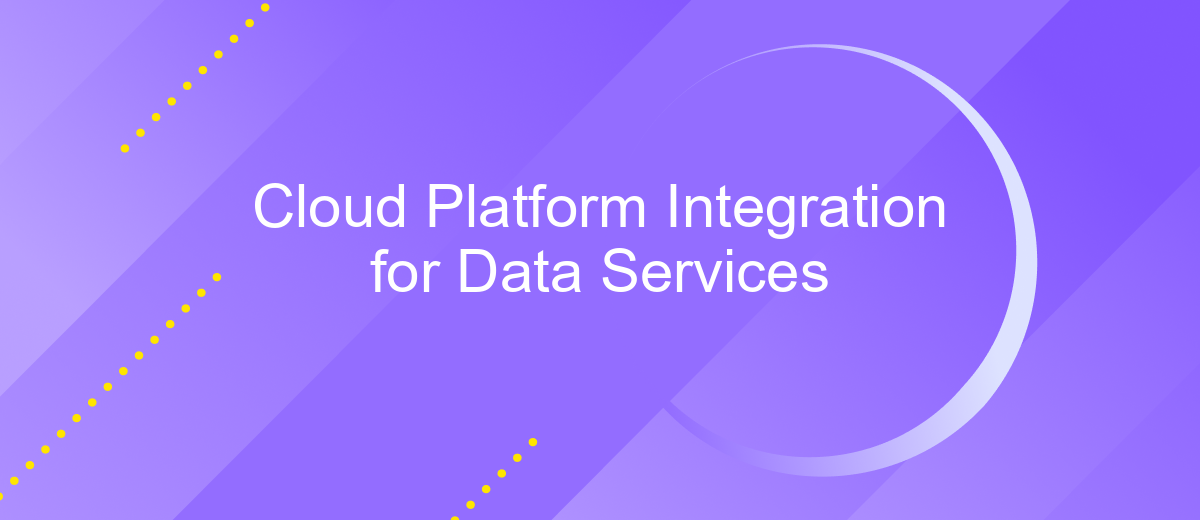Cloud Platform Integration for Data Services
In today's digital landscape, seamless data integration is crucial for businesses aiming to leverage cloud technologies. Cloud platform integration for data services enables organizations to connect disparate data sources, streamline workflows, and enhance data accessibility. This article explores the key benefits, challenges, and best practices for integrating cloud platforms to optimize data services and drive business growth.
Introduction
In today's digital era, the integration of cloud platforms for data services is essential for businesses aiming to streamline operations and enhance scalability. By leveraging cloud-based solutions, organizations can efficiently manage and process vast amounts of data, ensuring seamless connectivity and collaboration across various applications and services.
- Improved data accessibility and sharing
- Enhanced scalability and flexibility
- Cost-effective infrastructure management
- Real-time data processing and analytics
One notable tool in this domain is ApiX-Drive, a service designed to simplify the integration process. ApiX-Drive enables users to connect different applications and automate workflows without requiring extensive technical expertise. This not only accelerates the integration process but also ensures that data flows smoothly between various platforms, enhancing overall efficiency and productivity.
Cloud Platform Integration Options

When it comes to integrating cloud platforms for data services, there are several options available to streamline and enhance your data workflows. One of the most common methods is through API-based integrations, which allow different platforms to communicate and share data seamlessly. Tools like ApiX-Drive offer a user-friendly interface to set up these integrations without the need for extensive coding knowledge. This service supports a wide range of applications, enabling you to automate data transfers and ensure that your systems are always up to date.
Another option is to use middleware solutions that act as intermediaries between your cloud platforms. These solutions can handle complex data transformations and ensure that data is compatible across different systems. Additionally, cloud-native integration services provided by major cloud providers like AWS, Azure, and Google Cloud offer robust and scalable options for managing data integrations. These services often come with built-in security features, ensuring that your data remains protected throughout the integration process.
Best Practices for Integrating with Data Services

Integrating cloud platforms with data services requires careful planning and execution to ensure seamless data flow and system compatibility. Following best practices can significantly enhance the efficiency and reliability of your integration efforts.
- Understand Your Requirements: Begin by clearly defining the data services you need to integrate and the specific requirements of your cloud platform. This helps in selecting appropriate tools and methods.
- Use Reliable Integration Tools: Utilize robust integration platforms like ApiX-Drive, which offer pre-built connectors and automation features to simplify the integration process.
- Ensure Data Security: Implement strong encryption and access control measures to protect sensitive data during transmission and storage.
- Monitor and Maintain: Regularly monitor the integration for any issues and ensure timely updates and maintenance to keep the system running smoothly.
- Test Thoroughly: Conduct comprehensive testing in a controlled environment to identify and resolve potential issues before going live.
By adhering to these best practices, organizations can achieve efficient and secure integration of cloud platforms with data services, ensuring uninterrupted data flow and operational excellence.
Case Studies & Examples

One of the most compelling ways to understand the benefits of cloud platform integration for data services is through real-world case studies. Companies across various industries have successfully leveraged these integrations to streamline operations, enhance data accuracy, and drive business growth.
For instance, a retail company integrated its e-commerce platform with a cloud-based CRM system using ApiX-Drive. This integration allowed for real-time updates on customer interactions, leading to more personalized marketing campaigns and improved customer satisfaction.
- A healthcare provider used cloud integration to synchronize patient data across multiple systems, ensuring accurate and timely access to critical information.
- A financial services firm utilized cloud integration to automate data transfers between its accounting software and banking systems, reducing manual errors and saving time.
- An educational institution implemented cloud integration to connect its learning management system with student databases, enhancing the overall learning experience.
These examples illustrate how cloud platform integration, facilitated by tools like ApiX-Drive, can significantly enhance operational efficiency and data management across various sectors. By automating data workflows and ensuring seamless connectivity between disparate systems, businesses can focus more on strategic initiatives rather than manual data handling.


Conclusion
In conclusion, the integration of cloud platforms for data services is pivotal in modernizing and streamlining business operations. By leveraging the capabilities of cloud integration tools, organizations can ensure seamless data flow, improved collaboration, and enhanced scalability. These integrations not only reduce the complexity of managing disparate systems but also offer robust security measures to protect sensitive information.
One notable tool that facilitates these integrations is ApiX-Drive. This service simplifies the process of connecting various applications and automating workflows, making it an invaluable asset for businesses looking to optimize their operations. By employing ApiX-Drive, companies can achieve greater efficiency and focus on their core activities, knowing that their data services are well-integrated and functioning smoothly. As cloud technologies continue to evolve, the importance of effective integration will only grow, making it essential for businesses to adopt reliable solutions like ApiX-Drive.
FAQ
What is Cloud Platform Integration for Data Services?
Why is Cloud Platform Integration important?
How can I automate data transfer between different cloud services?
What types of integrations can be set up using cloud integration platforms?
How secure is the data during cloud platform integration?
Do you want to achieve your goals in business, career and life faster and better? Do it with ApiX-Drive – a tool that will remove a significant part of the routine from workflows and free up additional time to achieve your goals. Test the capabilities of Apix-Drive for free – see for yourself the effectiveness of the tool.

